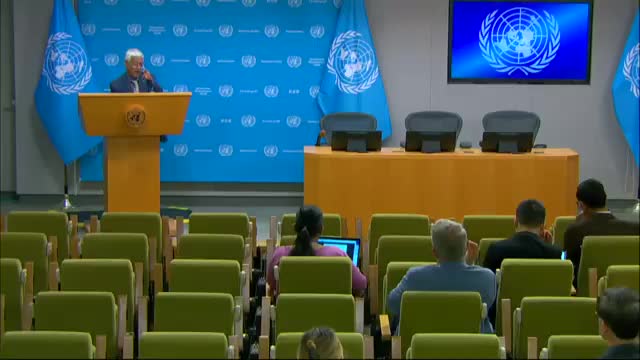UN says new cybercrime treaty must protect fundamental rights after press freedom groups warn of misuse
Get AI-powered insights, summaries, and transcripts
Subscribe
Summary
A reporter asked whether a proposed international convention against cybercrime could be used to criminalize journalism; a UN spokesperson said the secretary‑general will emphasize that the convention must uphold human rights including privacy and dignity.
The United Nations will mark the signing of an international convention against cybercrime with an emphasis on protecting fundamental human rights, a UN spokesperson said, responding to concerns from press freedom organizations that anti‑cybercrime laws are being used to silence journalists.
A reporter identified as Stefano asked whether the secretary‑general was concerned that a treaty to fight cybercrime could be “weaponized to silence journalists” and criminalize dissent. The UN spokesperson replied that the secretary‑general intends to stress that the draft convention must protect “fundamental human rights, including privacy, dignity, and safety.”
The spokesperson said the secretary‑general’s remarks at the signing will underline that human‑rights standards must be “fully upheld” in the fight against cybercrime. The signing event is scheduled to be attended by about 115 member state delegations, the spokesperson said; the convention will enter into force 90 days after the deposit of the 40th instrument of ratification, according to the briefing.
Why it matters: Civil‑society and press‑freedom organizations have raised questions about broad or vague anti‑cybercrime provisions being used by governments to prosecute reporting or dissent. The UN’s public statement that human rights protections must be central to the treaty signals the secretary‑general’s explicit concern about those risks.
Looking ahead: The secretary‑general is expected to attend the high‑level signing event in Hanoi; the UN will publish his remarks and make the event available on UN Web TV, the spokesperson said.
